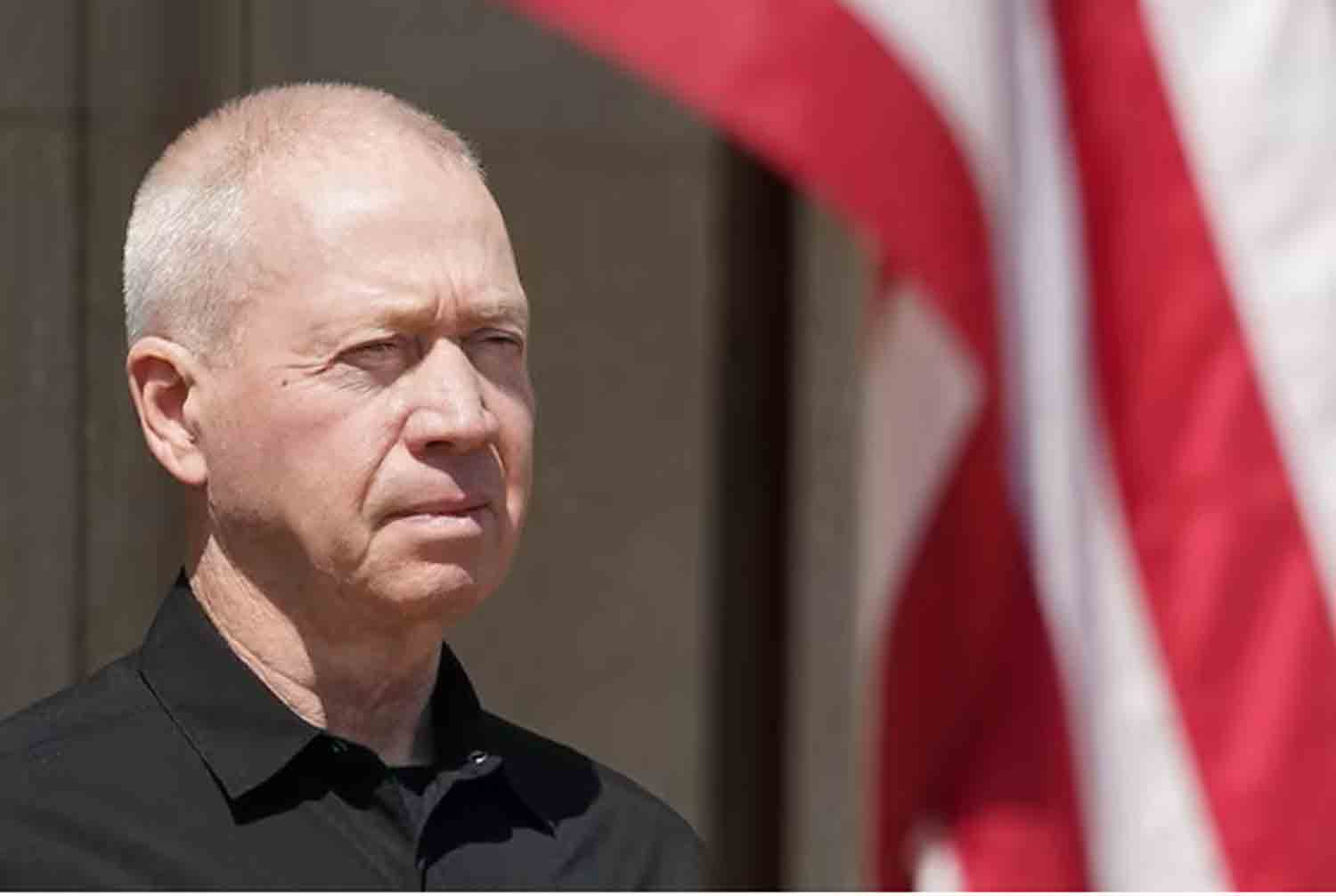Israeli Prime Minister Benjamin Netanyahu unexpectedly dismissed his widely supported defense minister, Yoav Gallant, on Tuesday, a decision that comes amid ongoing conflicts on several fronts in the region. This announcement triggered widespread protests throughout the country, including a large demonstration that brought central Tel Aviv to a standstill.
Netanyahu and Gallant have frequently clashed over the ongoing war in Gaza. However, Netanyahu had refrained from terminating Gallant’s position until now, as global attention was directed towards the U.S. presidential election. In his evening announcement, Netanyahu pointed to “significant gaps” and a “crisis of trust” as reasons for the change, appointing a long-time ally in Gallant’s place.
“During wartime, it is crucial to maintain complete trust between the prime minister and the defense minister,” Netanyahu stated. “Regrettably, while there was mutual trust and productive collaboration in the initial months of the campaign, that trust has deteriorated in recent months.”
Initially, Israel’s leadership appeared united in its response to Hamas’ attack on October 7, 2023. However, as the conflict has continued and expanded into Lebanon, significant policy disagreements have surfaced.
While Netanyahu advocates for sustained military action against Hamas, Gallant has adopted a more pragmatic stance, arguing that military efforts have established conditions conducive to a temporary diplomatic resolution that could facilitate the return of hostages held by the militant organization.
In a late-night press conference aired on national television, Gallant expressed his disagreements with Netanyahu on three critical matters: the necessity to eliminate controversial exemptions from military service for ultra-Orthodox men, the urgent requirement for a hostage agreement, and the establishment of an official commission to investigate the political and security failures surrounding the events of October 7, when Hamas militants invaded Israel, resulting in the deaths of 1,200 individuals and the abduction of 250 others. Israel estimates that approximately 100 hostages are still held captive, with around 65 of them believed to be alive.
Gallant emphasized that drafting ultra-Orthodox individuals is essential for both fairness and security, especially given the numerous challenges Israel currently faces.
He stated that a hostage agreement must be reached “as quickly as possible, while they are still alive,” asserting that there would be “no forgiveness” for any neglect in this matter. He also insisted that a thorough investigation into the October 7 incidents is crucial for the government to learn the necessary lessons. Netanyahu has dismissed calls for such an inquiry, arguing that it should only occur after the war concludes.
Gallant concluded his remarks by paying tribute to the soldiers serving in the military and those who have lost their lives in conflicts. He saluted as he departed from the podium.
Families of the hostages, along with tens of thousands participating in anti-government demonstrations, accuse Netanyahu of obstructing a deal to preserve his political power. His hard-line coalition partners have threatened to destabilize the government if he concedes to Hamas, increasing the likelihood of early elections amid declining public support for the prime minister.
“Firing Gallant in the middle of a war is an act of madness,” stated opposition leader Yair Lapid on X. “Netanyahu is compromising Israel’s security and the safety of Israeli soldiers for his own disgraceful political survival.”
The grassroots organization representing families of hostages stated that Gallant’s dismissal represents “a direct continuation of the ‘efforts’ to undermine the abductee agreement.”
Shortly after the announcement, thousands of demonstrators assembled in central Tel Aviv, obstructing the main highway and causing significant traffic disruptions. Many in the crowd waved blue and white Israeli flags, while others used whistles and drums to amplify their voices, gathering around several bonfires. In Jerusalem, several thousand individuals protested outside Netanyahu’s residence, with additional gatherings occurring throughout the city. Demonstrators also blocked roads in various locations across the nation, and Israeli television broadcasted footage of confrontations between police and protesters.
This dismissal occurs during a particularly sensitive period. Israeli forces remain entrenched in Gaza, more than a year after their invasion, which has resulted in the deaths of over 42,000 Palestinians, including a substantial number of civilians, and extensive destruction. Meanwhile, Israeli ground troops are continuing a month-long offensive against Hezbollah militants in Lebanon, with hundreds of Israeli soldiers reported killed in the ongoing conflict.
Additionally, Israel has engaged in confrontations with Iranian-backed factions in Iraq, Syria, and Yemen, while also bracing for potential retaliatory actions from Iran. Iran has pledged to respond to an Israeli strike that followed an Iranian missile attack on October 1, which was itself a retaliation for previous Israeli assaults on Iranian-affiliated targets.
Discover more from Defence Talks | Defense News Hub, Military Updates, Security Insights
Subscribe to get the latest posts sent to your email.





